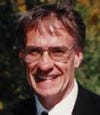
Recently I was in Spokane, WA, for Northwest Farm Credit Services’ AgVision and Executive Producers Summit lifelong learning conferences for farmers and ranchers. This year’s groups were eager to learn about the economy and business management practices to position their businesses to weather economic storms or capitalize on opportunities. I shared the program with Ed Seifried, Professor Emeritus from Lafayette College, Easton, PA. The program was full of his nuggets, perspectives and wisdom.
The Bad
Dr. Seifried’s first quote was “even if you are not interested in macroeconomics, macroeconomics is interested in you.” His words are spot on. For example, last year’s trade deficit was $558 billion, up from $500 billion in 2010. This was accumulated despite a weak dollar where exports were supposed to bring growth in the economy. The bottom line is that many economies were devaluing their currency to obtain growth and were beating the U.S. to the punch.
The Ugly
Dr. Seifried discussed the seven deadly sins to the U.S economy.
Federal spending is 25% of GDP, the highest since 1945.
The federal budget deficit was 10$ of GDP, the highest since 1945.
Federal debt is also the highest since 1945, at 67% of GDP.
Only 58% of the population is working, which is the lowest since 1980.
Only 47% of people pay any income taxes, the lowest in the modern era.
The portion of people accepting federal benefits is 47%, the highest in history.
Long-term unemployment is the most since 1930. Interestingly enough, the portion of people on disability was 1% in 1960 and is now 9% in 2012, with a rapid increase since the year 2000.
Unemployment has remained high despite the economic recovery that is now taking place because consumers are thriftier and are saving more money. This last recession was a balance sheet recession because people were paying off debt instead of spending and creating new jobs. Lack of mobility because of the inability to sell homes was a factor, along with technology, which is replacing man with machine.
The Good
Dr. Siefried was positive on the U.S. economy because of the pent-up demand for consumer goods, and the healing of the housing market. He indicated that the next big opportunity in the U.S. economy is energy. He provided examples of how gas and oil produced and refined in the U.S. are lifting economies in Ohio, Pennsylvania and the Dakotas, which has had a tremendous multiplier effect in agriculture and rural areas.
If you get a chance to experience Ed Seifried, you are in for a treat.
Editor’s note: Dave Kohl, Corn & Soybean Digest trends editor, is an ag economist specializing in business management and ag finance. He recently retired from Virginia Tech, but continues to conduct applied research and travel extensively in the U.S. and Canada, teaching ag and banking seminars and speaking to producer and agribusiness groups. He can be reached at [email protected].
About the Author(s)
You May Also Like






